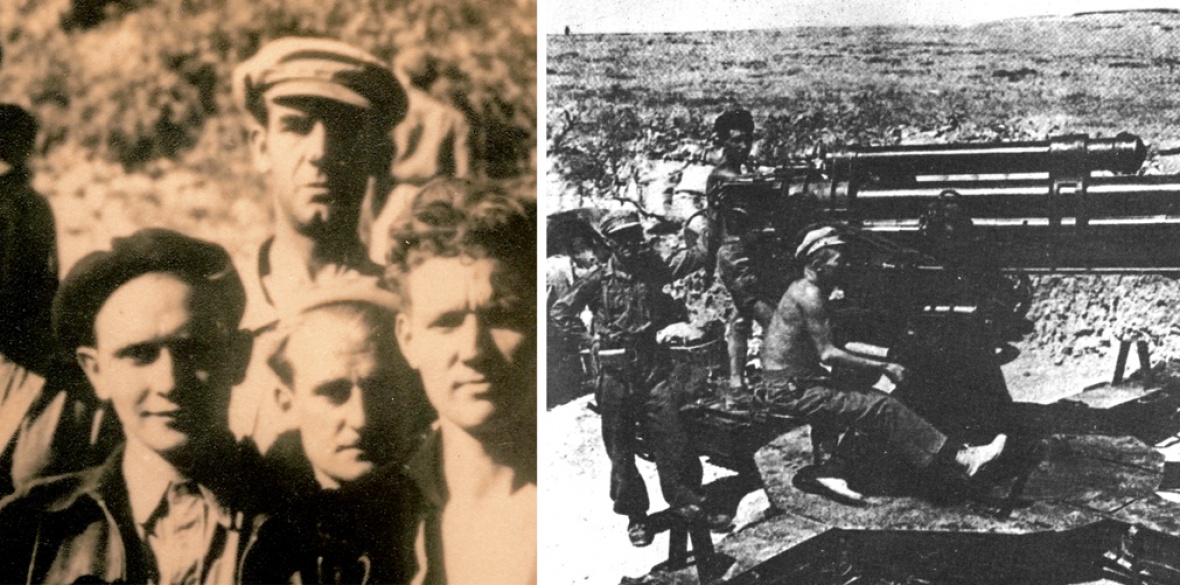This is the last article you can read this month
You can read more article this month
You can read more articles this month
Sorry your limit is up for this month
Reset on:
Please help support the Morning Star by subscribing here
JULY 25 this year marks the 80th anniversary of the start of the last great battle of the Spanish civil war — and what many now regard as the first battle of the second world war.
The Battle of the Ebro saw International Brigades, that great anti-fascist army of volunteers from around the world, “cover itself in glory,” as Ay Carmela, the famous battle-song declares.
Ninety British Battalion members lost their lives in the battle. They helped lead the Spanish Republic’s offensive across the Ebro on July 24 1938 and were on the front line for most of the next two months.
Their names are inscribed on a memorial that hangs in the Marx Memorial Library’s memorial garden in London.
The plaque is in three pieces — it was smashed by Spanish neo-fascists soon after it was unveiled in 2005 near Gandesa. It was immediately replaced, but the original was shipped to London and unveiled in 2016 by Labour’s shadow foreign secretary Emily Thornberry.
Among the International Brigade veterans present when the plaque was unveiled in Spain was the legendary Jack Jones, Liverpool docker and leader of the Transport and General Workers’ Union (now part of Unite). He had been wounded during fighting at the Ebro.
Jones’s participation in that epic battle and his lifelong efforts to keep the memory of his comrades in Spain alive underline the strong ties between the International Brigade volunteers and Britain’s labour movement.
Most of the 2,500 volunteers from Britain and Ireland were labour movement members and activists. Leading figures visited the British Battalion in Spain including Labour leader Clem Attlee, who had one of the battalion’s companies named after him.
Jones would always lament the tragic loss of life among the British volunteers — 526 were killed during the war in Spain – saying that many would have returned home to play distinguished roles in the labour movement.
Fortunately, many did survive, for example nurse Thora Silverthorne, daughter of a South Wales miner. She went on to found the first trade union for nurses, now part of Unison and, as a leading light in the Socialist Medical Association, was one of the architects of the NHS.
It was a shameful episode in our country’s diplomacy, and one that rebounded on Britain when it was eventually forced to go to war with nazi Germany and fascist Italy
Shortly before his death last year Rodney Bickerstaffe wrote that one of the lessons of the Spanish civil war was to show that there is a time to fight in a foreign war, just as there is a time not to.
Another lesson was that it’s better to trust the decent values of working people — in this case those brave men and women of the International Brigades — than their deceitful and self-interested rulers.
Bickerstaffe’s words especially ring true when applied to the Battle of the Ebro. Fighting raged against the backdrop of great powers manoeuvring, as Europe edged closer to all-out war.
At Munich in September 1938 Conservative prime minister Neville Chamberlain, who had already betrayed Spain by imposing an arms embargo on the Spanish Republic, sacrificed Czechoslovakia to the fascist dictators.
By November much of the Republic’s army had been crushed at the Ebro by the fascists’ overwhelming superiority in arms. Hitler and Mussolini saw to that, pouring aeroplanes, munitions and men into the fray. General Francisco Franco’s final victory was only months away.
Research in the photo archives of the Imperial War Museum has shown that some of the very same Luftwaffe planes that bombed and strafed the British International Brigaders at Ebro were soon flying over the skies of southern England during the Battle of Britain in 1940.
The volunteers in Spain warned Chamberlain that the fascist beast could not be appeased.
They were ignored, not least because much of the British establishment preferred to see enemies only on the left, in this case the reformist elected government of the Spanish Republic and its only major military ally the Soviet Union.
The International Brigades failed to stop Franco. But their stand against fascism and their story of heroism and sacrifice still shine as beacons in labour movement and radical history.
Today, the work of the International Brigade Memorial Trust receives generous support from trade unions.
They recognise that the spirit of anti-fascism and international solidarity shown by the International Brigades are inspirational values that must be passed on to new generations.
¡No pasarán! They shall not pass!
The Battle of the Ebro will be remembered on Saturday July 7 at the International Brigade memorial in Jubilee Gardens, London Southbank. The commemoration runs from 1-2pm and will include guest speakers, music and remembrance. Afterwards there will be an informal social at the Horse & Stables on nearby Westminster Bridge Road. All invited – and bring your banners.
Jim Jump is secretary of the International Brigade Memorial Trust











